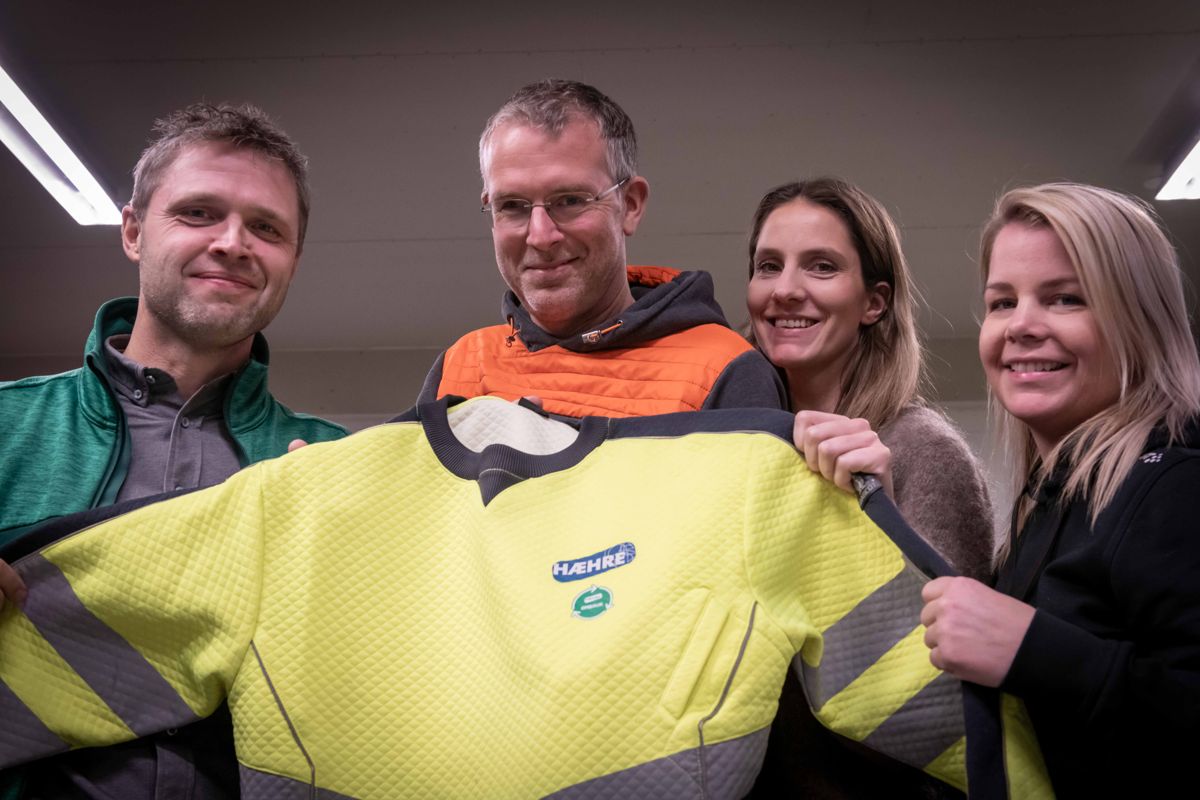Our customers are beginning to demand solutions and systems for the reuse and recycling of products. When Hæhre takes the initiative for reuse and recycling solutions for workwear, TESS cannot say no. With ownership at TESS Vikersund, the pilot project is already underway.
Phase 1 – Facilitating Reuse: Incorrectly ordered, unused, or "almost new" high-visibility clothing will be delivered to the site office before being sent to TESS Vikersund. Hæhre employees will eventually have the opportunity to buy clean and reused clothes at a 50 percent discounted point rate.
Phase 2 – Sewing and Repair: TESS, among others, has Mooving Mamas on board, who is responsible for repairing the clothes. They have sustainability at their core and work to include and integrate immigrant women into the Norwegian workforce by co-creating redesigned products and services within sewing.
Phase 3 – Textile Recycling: The goal is to expand the scheme to include recycling.
In the first phase, incorrectly ordered, unused, or "almost new" high-visibility clothing with the Hæhre logo will be delivered to the site offices before being sent to TESS Vikersund.
Local TESS employees will deliver two empty TESS boxes with labels to the respective sites and agree with the project manager on where these should be placed. The label states: Incorrectly ordered, unused, or "almost new" high-visibility clothing can be handed in. Initially, the scheme covers high-visibility clothing with the Hæhre logo: Jackets, sweaters, pants, coveralls, and t-shirts. Each shipment is labeled with name, employee number, email, and mobile number.

From left: Stian Solbakken (TESS Vikersund), Ola Petter Hagen (Hæhre), Madelen Mørk Frydenlund (Hæhre), and Lillann Skatvedt (TESS Vikersund). Photo: Tor Kleiven, Hæhre Entreprenør
Sold at Half Price
When the boxes are full, they are collected by the local TESS and sent to TESS Vikersund. The clothes are washed by Asvo and then made available in the Smartstore at half price.
We have presented the concept and sent an email to the selected service centers responsible for each site in phase 1.
In phase two, we will start with the repair of clothes before we expand the scheme to include recycling in phase three.

